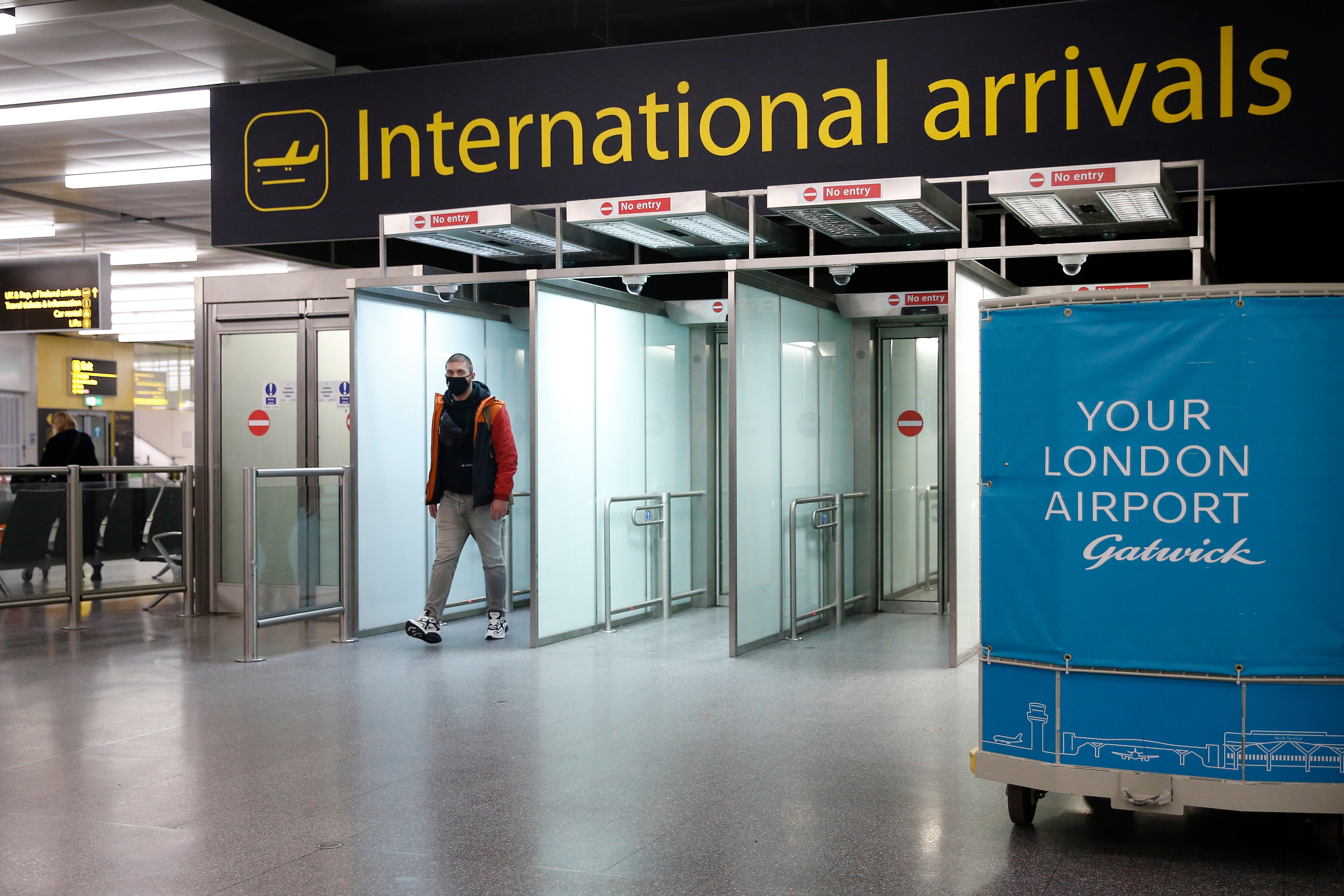Lying to avoid mandatory hotel quarantine could see travellers prosecuted for forgery, Downing Street says
No parliamentary debate or vote needed to introduce 10-year jail sentence

Anyone lying about a visits to high-risk coronavirus countries to avoid mandatary hotel quarantine when arriving in the UK will be prosecuted under the Forgery Act, Downing Street has revealed.
Use of the 1981 act means no parliamentary debate or vote is needed to implement the prison sentences of up to 10 years, which provoked widespread concern when announced by health secretary Matt Hancock on Tuesday.
Travellers could be charged if they fill in passenger locator forms incorrectly on their arrival in the UK, said No 10. Lying on the form might allow them to dodge the requirement coming into effect from Monday for 10 days’ mandatory quarantine in an airport hotel.
Health Secretary Matt Hancock announced on Tuesday that people returning to England from 33 “red list” destinations - including Portugal, Brazil, South Africa and the United Arab Emirates - would have to pay £1,750 to quarantine for 10 days in Government-designated hotels.
Those caught lying about their movements could be fined £10,000 or jailed for 10 years, he warned.
Senior legal figures have accused the government of heavy-handedness, with former Supreme Court judge Lord Sumption asking: “Does Mr Hancock really think that non-disclosure of a visit to Portugal is worse than the large number of violent firearms offences or sexual offences involving minors, for which the maximum is seven years?”
Former Conservative attorney general Dominic Grieve said 10-year jail terms are a “mistake” and the courts are “simply not going to impose it”.
“This is a regulatory offence, and no regulatory offence I can think of attracts a 10-year sentence,” he told the BBC Radio 4 Today programme.
Boris Johnson’s official spokesman today confirmed that prosecution for filling in a passenger location form incorrectly was possible under the Forgery and Counterfeiting Act.
“If people failed to abide by the rules and inaccurately or purposefully didn’t fill in the relevant documentation properly, they would be charged under the Forgery Act, which includes lying on forms,” said the spokesman.
The Act says: “A person is guilty of forgery if he makes a false instrument, with the intention that he or another shall use it to induce somebody to accept it as genuine, and by reason of so accepting it to do or not to do some act to his own or any other person’s prejudice.”
The law also encompasses a string of related crimes like copying and using falsified documents and papers.
Documents setting out the law list penalties including fines and jail time, adding: “A person guilty of an offence to which this subsection applies shall be liable on conviction on indictment to imprisonment for a term not exceeding 10 years.”
Other crimes which carry jail sentences of up to 10 years include some sex crimes including sexual assault, those involving children as well as cruelty to a child, some burglary offences, public order offences like rioting, making threats to kill and in some cases for possessing a firearm.
Subscribe to Independent Premium to bookmark this article
Want to bookmark your favourite articles and stories to read or reference later? Start your Independent Premium subscription today.

Join our commenting forum
Join thought-provoking conversations, follow other Independent readers and see their replies